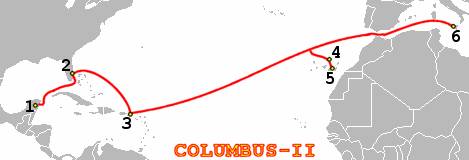Mexico: Electronic Infrastructure
Mexico’s electronic infrastructure is
highly developed and mostly privatized. Mexico
is very well connected internationally, both through satellite connections
including 32 Intelsat satellites, 2 Solidaridad satellites, and
several Inmarsat mobile satellite stations, as well as fiber optic cable
lines such as the Columbus II. The Columbus II allows flow of traffic
from Mexico
to The United States, Europe,
and through those, the rest of the world. Because of their geographic proximity
and high reciprocal traffic, Mexico and the United States share
connections across the borders of Texas
and Nuevo Leon
and California
and Baja California via
a fiber optic cable network (as well as many slower connections). Mexico
is also linked to the Central American Microwave System of trunk connections.
Mexico’s
international electronic infrastructure is somewhat misleading regarding the
state of its national electronic infrastructure. Although Mexico’s urban centers are
well connected, with a large Fiber Optic Truncal Network between the cities of Monterrey, Mexico City, Guadalajara, and Cancun, Smaller cites and rural areas depend
highly on telephone lines and small satellite receivers for connectivity. This
is in part due to the fact that population density in Mexico is extremely skewed,
with 30% of the population living in Monterrey,
Mexico,
and Guadalajara alone. In
the major cities, Internet with speeds ranging from 56k to super fast T1 lines
are readily available, whereas in most rural and smaller urban areas dial up
internet is the only service available if at all. As of 2005, Mexico had
approximately 19.9 million ground telephone lines and 56 million cellular
telephone lines which could potentially be used to connect the internet. Of the
estimated 14.8 million internet capable computers in Mexico, about 8.7 million are
connected to the internet.
References:
http://www.banderas.com.mx/hist__de_internet.htm
